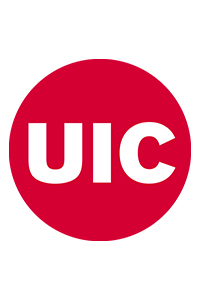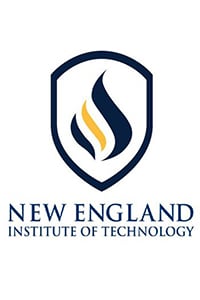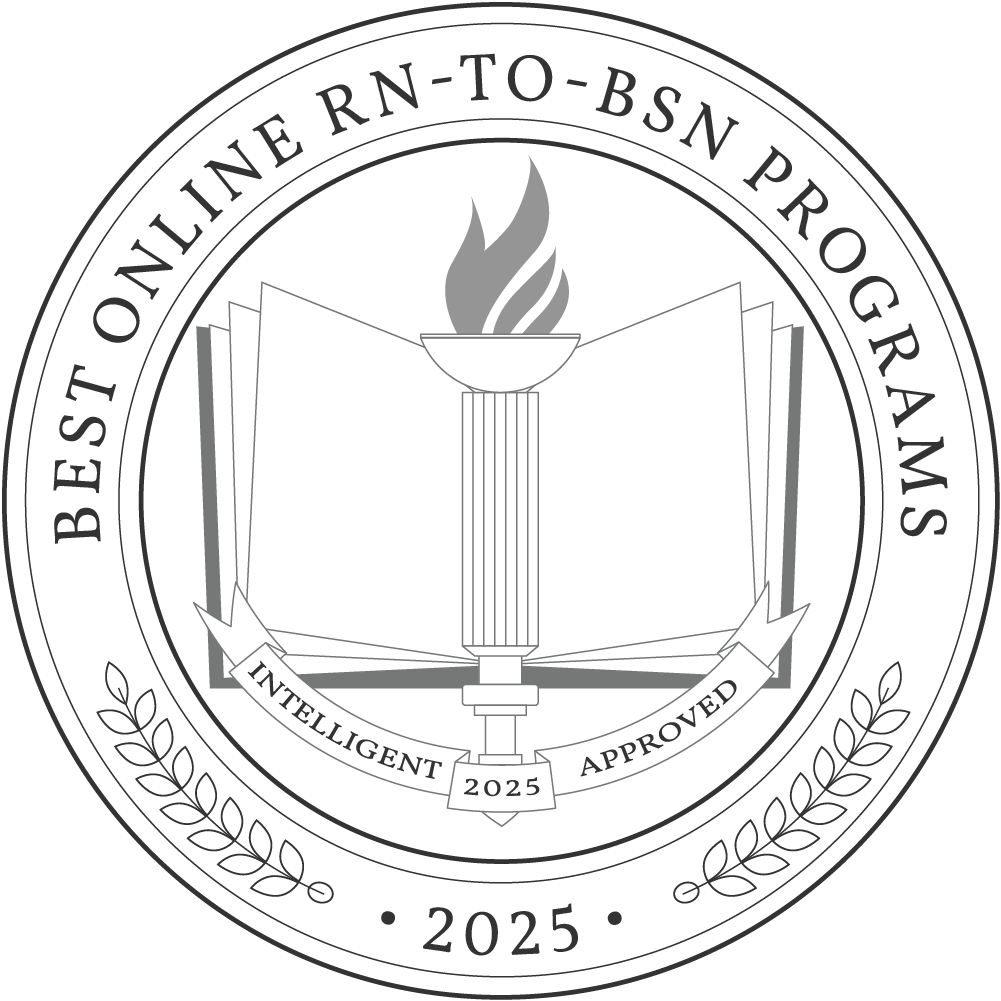Current registered nurses (RNs) who want to increase their job opportunities and earning potential may want to pursue a Bachelor of Science in nursing (BSN) degree. This degree qualifies students to become nurse educators, health policy nurses, nurse recruiters, nurse informaticists, forensic nurses, clinical research nurses, nurse health coaches, and more. They can find work outside of nursing as well, with possible occupations such as legal consultant, healthcare marketing consultant, and fitness coach. A BSN also paves the way for a Master of Science in nursing (MSN), which opens up even more career opportunities.
According to the Bureau of Labor Statistics, the median annual pay for registered nurses is $86,070, while nurse practitioners earn $129,480. And according to the National Center for Education Statistics, the average yearly tuition for an undergraduate program is $7,998 at public universities and $34,923 at private institutions. It generally takes one to two years of full-time study to complete an RN-to-BSN program.
Why Trust Us
The Intelligent.com Higher Education Team is dedicated to providing students with independent, equitable school and program rankings and well-researched resources. Our expert-driven articles cover topics related to online colleges and programs, paying for school, and career outlooks. We use data from the U.S. Department of Education’s College Scorecard, the National Center for Education Statistics, and other reputable educational and professional organizations. Our academic advisory team reviews content and verifies accuracy throughout the year for the most current information. Partnerships do not influence rankings or editorial decisions.
- Analyzed over 2,000 national, accredited, and nonprofit colleges and universities
- 800+ rankings pages are reviewed and updated yearly
- Content is informed by reputable sources, surveys, and interviews with academic advisors and other experts
- Over 100 data points are reviewed for accuracy and quality throughout the year, including sources
How we rank schools
Our list features the best online RN-to-BSN degree programs at top colleges nationwide. Each school featured is a nonprofit, accredited institution — either public or private — with a high standard of academic quality for post-secondary institutions.
We evaluated each school’s program on tuition costs, admission, retention and graduation rates, faculty, reputation, and the student resources provided for online students. We collected data from trusted sources like the National Center for Education Statistics, individual school and program websites, school admissions counselors, and other data sources. Then, we calculated the Intelligent Score on a scale of 0 to 100 based on the following criterion:
Academic Quality:
- Admission rate versus enrollment rate
- Retention rate of students who return after year one
- Accreditation status (regional and programmatic)
- Nonprofit status, both private and public institutions
Graduation Rate
- Overall graduation rate
- Total number of currently enrolled students, including diversity metrics
- Student-to-faculty ratio
Cost and ROI
- In-state and out-of-state per-credit tuition rates and fees
- Required credits to graduate
- Earning potential after graduation
- Availability of federal student loans, scholarships, and other financial aid options
Student Resources
- Available student services for online-only and hybrid programs
- On-campus amenities like tutoring centers and the number of libraries
Read more about our ranking methodology.
Best 48 Accredited Online RN-to-BSN Degree Programs
FiltersInstitution Type
Status
- Intelligent Score
- Alphabetically By University Name
- Acceptance Rate
- Enrollment
- In-state Graduate Tuition
- Out-of-state Graduate Tuition
- In-state Undergraduate Tuition
- Out-of-state Undergraduate Tuition

University of Central Florida
Intelligent Score: 99.88In-state: $4,478
Out-of-state: $19,810
In-state: $6,916
Out-of-state: $6,916
SAT: 1160-1340
ACT: 25-30
$105
Online
Commission on Collegiate Nursing Education
30

University of Arkansas
Intelligent Score: 98.86In-state: $7,568
Out-of-state: $24,056
In-state: $7,752
Out-of-state: $7,752
SAT: 1090-1280
ACT: 23-29
$329
Online
Commission on Collegiate Nursing Education
30

Florida International University
Intelligent Score: 98.64In-state: $4,721
Out-of-state: $16,529
In-state: $8,912
Out-of-state: $8,912
SAT: 1110-1260
ACT: 23-29
Resident: $236
Non-Resident: $649
Online
Commission on Collegiate Nursing Education
120

CUNY School of Professional Studies
Intelligent Score: 97.91In-state: $6,930
Out-of-state: $14,880
In-state: $11,090
Out-of-state: $11,090
SAT: 1170-1340
ACT: 25-31
Resident: $289
Non-Resident: $350
Online
Commission on Collegiate Nursing Education
120

Ohio State University
Intelligent Score: 97.73In-state: $10,615
Out-of-state: $32,599
In-state: $11,560
Out-of-state: $11,560
SAT: 1210-1430
ACT: 26-32
$493
Online
Commission on Collegiate Nursing Education
120

Arizona State University
Intelligent Score: 97.53In-state: $10,710
Out-of-state: $28,800
In-state: $11,720
Out-of-state: $11,720
SAT: 1100-1320
ACT: 21-28
$481
Online
Commission on Collegiate Nursing Education
39

Sam Houston State University
Intelligent Score: 97.02In-state: $5,856
Out-of-state: $15,672
In-state: $5,765
Out-of-state: $5,765
SAT: 970-1120
ACT: 18-23
Resident: $637
Non-Resident: $1,047
Online
Commission on Collegiate Nursing Education
121

UMass Amherst
Intelligent Score: 96.9In-state: $15,791
Out-of-state: $35,779
In-state: $14,014
Out-of-state: $14,014
SAT: 1200-1390
ACT: 27-32
$525
Online
Commission on Collegiate Nursing Education
120

University of North Florida
Intelligent Score: 96.49In-state: $3,996
Out-of-state: $16,799
In-state: $8,570
Out-of-state: $8,570
SAT: 1040-1230
ACT: 20-27
Resident: $143
Non-Resident: $600
Online
Commission on Collegiate Nursing Education
60

Fort Hays State University
Intelligent Score: 96.21In-state: $4,140
Out-of-state: $14,580
In-state: $3,726
Out-of-state: $3,726
SAT: N/A
ACT: N/A
$243
Online
Commission on Collegiate Nursing Education
120

West Texas A&M University
Intelligent Score: 95.62In-state: $5,748
Out-of-state: $7,195
In-state: $4,968
Out-of-state: $4,968
SAT: 920-1130
ACT: 18-23
Resident: $235
Non-Resident: $752
Online
Commission on Collegiate Nursing Education
131-133

Georgia Southern University
Intelligent Score: 95.39In-state: $4,371
Out-of-state: $15,425
In-state: $4,986
Out-of-state: $4,986
SAT: 993-1170
ACT: 18-24
$199
Online
Commission on Collegiate Nursing Education
120

Southeast Missouri State University
Intelligent Score: 94.94In-state: $6,779
Out-of-state: $12,951
In-state: $5,373
Out-of-state: $5,373
SAT: N/A
ACT: N/A
$285
Online
Commission on Collegiate Nursing Education
120

University of Illinois Chicago
Intelligent Score: 94.87In-state: $35,872
Out-of-state: $50,480
In-state: $39,068
Out-of-state: $39,068
SAT: 1080-1310
ACT: 23-31
$330
Online
Commission on Collegiate Nursing Education
30

New England Institute of Technology
Intelligent Score: 94.64In-state: $55,770
Out-of-state: $55,770
In-state: $28,850
Out-of-state: $28,850
SAT: 920-1140
ACT: 16-18
$275
Online
Accreditation Commission for Education in Nursing
59

University of Oklahoma
Intelligent Score: 93.34In-state: $4,788
Out-of-state: $20,169
In-state: $6,943
Out-of-state: $6,943
SAT: 1100-1300
ACT: 23-29
Resident: $179
Non-Resident: $754
Online
Commission on Collegiate Nursing Education
30

Southern Illinois University Edwardsville
Intelligent Score: 92.88In-state: $30,818
Out-of-state: NA
In-state: $27,387
Out-of-state: $27,387
SAT: NA
ACT: NA
$319
Online
Commission on Collegiate Nursing Education
120

Northern Arizona University
Intelligent Score: 91.91In-state: $10,243
Out-of-state: $16,248
In-state: $10,309
Out-of-state: $10,309
SAT: N/A
ACT: N/A
$378
Online
Commission on Collegiate Nursing Education
120
How to Choose an Online RN-to-BSN Degree Program
Choose your area of study
Since those with a BSN are qualified to work in many different fields, students planning to take this degree should consider what career they plan to pursue after graduation. Many programs will allow you to select a concentration and focus your studies on a particular area of nursing practice, such as psychiatric mental health, pain management, informatics, preoperative nursing, critical care, or dialysis. Additionally, you’ll almost certainly be required to do an on-site clinical experience, so check to see what opportunities are available in your area.
Research schools and programs
You should only consider institutions that have been approved by a DOE-recognized regional accrediting organization, such as the New England Commission of Higher Education or Northwest Commission on Colleges and Universities. These organizations evaluate schools to ensure they provide students with a high-quality education. Those who attend a school that isn’t regionally accredited may be unable to access financial aid or transfer credits to another institution if needed.
Look for RN-to-BSN programs that have also been accredited by the Commission on Collegiate Nursing Education (CCNE) or the Accreditation Commission for Education in Nursing (ACEN). These programmatic accrediting organizations have particularly high standards for nursing education.
While you’re compiling details about the academic aspects of various programs, take note of these factors as well:
- What is the cost of the program? Before you get too far into researching a program, check the cost of tuition. It’s probably not a good fit if it’s outside your budget range. Remember to weigh the cost against academics and other factors on this list; the least expensive option isn’t always the best.
- Where is the school located? Although you’ll be studying online, you may still have access to on-campus services, events, and amenities, including fitness centers, libraries, student clubs, job fairs, sporting events, and more. Living near your school can make it easier to take advantage of these perks. Additionally, your program may include in-person requirements like labs or practicums, requiring you to visit campus. Therefore, you may want to consider a school’s location when choosing a program.
To learn more about any schools that you’re interested in, you can visit the school’s website, contact an admissions counselor, follow the school on social media, or attend an in-person or virtual open house.
Prepare for tests and applications
Students who apply for this degree should already have an associate degree in nursing and an active, unencumbered nursing license. It may be necessary to have a valid license in the state where the university is located.
Most schools have a minimum GPA requirement, but this varies from school to school. Transcripts are typically required. You may also be asked to submit letters of recommendation, a personal statement, scores from an aptitude test such as the HESI A2, and a resume demonstrating your nursing work experience.
Be sure to check the deadlines for submitting applications and supporting documents. Some schools offer rolling admissions, while others only accept new students during one or more dates throughout the year. Applicants whose native language isn’t English will need to submit test scores showing proficiency in English. Since admissions requirements vary, check the school’s website or talk to an admissions counselor for details.
Select your program
Before making your final decision, review your needs and goals again. Do you plan to attend school full-time or part-time? Do you want your program to be as online as possible, or are you fine with a hybrid program that has a fair amount of in-person requirements? Some programs offer asynchronous courses, which can be completed at your own pace, while others only offer synchronous courses, which involve remotely attending lectures and completing assignments at the same time as other students — which of these two online learning formats do you prefer? Your school should accommodate your scheduling needs and learning preferences.
Determine how you’ll pay for your degree
Speak to financial aid counselors at the schools you’re interested in for the most accurate and specific information about program cost.
To determine eligibility for federal student loans, grants, work-study, and scholarships, students must complete the Free Application for Federal Student Aid (FAFSA). Many institutions use the information from the FAFSA to determine eligibility for scholarships. Students should also explore other scholarship avenues, including community and religious organizations, nonprofits, and businesses. Many schools offer payment plans that allow students to spread tuition payments out over the term, as well as military discounts for veterans and active-duty service members.
Enrolling in a flexible online program can make it easier for students to work full- or part-time, which can help subsidize education costs. In many cases, employers may offer tuition assistance benefits to help students pay for school.
What Can You Expect from an Online RN-to-BSN Degree Program?
An RN-to-BSN program is a completion program for registered nurses who have a diploma or associate degree in nursing from an accredited college and would like to earn their bachelor’s degree in nursing. Students can transfer up to 90 credits from previous postsecondary education, allowing them to earn their bachelor’s degree faster than they would in a traditional program. Those with only a high school diploma are not eligible. The program covers research, health promotion, patient care technology, and safety and quality within the healthcare system. It is a way for registered nurses to advance their careers and a stepping stone to earning an MSN.
Potential courses you’ll take in an online RN-to-BSN degree program
- Care of children and adolescents. This course teaches students how to provide healthcare to children and adolescents in clinical settings. They learn about healthcare issues and diagnoses that are common among children today and how to manage them.
- Population health. Students learn how to meet the growing challenges of healthcare delivery and management. The course examines how healthcare professionals can better understand the populations they serve and how to achieve meaningful health outcomes for those populations.
- Legal and ethical issues in clinical practice. This course examines the core ethical principles that nurses must adhere to. Students learn what legal challenges and ethical dilemmas they might encounter and what appropriate actions to take.
- Information technology skills for nurses. Because the development and delivery of healthcare services are inextricably tied to information technology, nurses must be trained to use technology appropriately. This course gives students the basic skills to navigate IT as they advance their careers.
What Can I Do With an Online RN-to-BSN Degree?
Career outlook
Earning a BSN degree can help registered nurses advance into more specialized roles within the healthcare field. This degree also increases earning potential, as nurses with bachelor’s degrees can command higher salaries than those with a diploma or associate degree.
Many RN-to-BSN degree programs offer students the opportunity to choose a concentration and hone their skills in a particular area of practice. Specialization options include neonatal, pediatric, or geriatric care, psychiatric nursing, oncology, cardiology, and trauma.
A common path for BSN students is pursuing a master’s degree to become an advanced practice registered nurse (APRN), also known as a nurse practitioner. These individuals have a greater scope of practice than RNs, including the ability to diagnose medical issues and prescribe medication. They can also pursue specializations in anesthesiology or midwifery.
- Registered nurses — Work as part of a team with physicians and other healthcare specialists to provide and coordinate patient care, educate patients and the public about various health conditions, and provide advice and emotional support to patients and their families.
- Median annual salary: $86,070
- Projected employment growth (through 2032): 6%
- New jobs projected: 193,100 per year
- Health education specialists — Teach people about behaviors that promote wellness, including developing strategies to improve the well-being of individuals and communities.
- Median annual salary: $62,860
- Projected employment growth (through 2032): 7%
- New jobs projected: 6,600 per year
- Nurse practitioners — In addition to standard nursing tasks, this role often involves providing primary or specialty healthcare, with the scope of practice varying from state to state.
- Median annual salary: $129,480
- Projected employment growth (through 2032): 38%
- New jobs projected: 29,200 per year
Online RN-to-BSN Degree Frequently Asked Questions
How do I apply to an online RN-to-BSN degree program?
Most schools accept applications electronically via their website, but applications can also be submitted through the mail. Instead of filling out a different application for each university, many schools accept the Common Application, allowing you to apply to multiple institutions simultaneously. Check deadlines and make sure everything is submitted on time. It’s also always good to speak with an admissions counselor before applying.
How much does an online RN-to-BSN degree cost?
The cost of an online RN-to-BSN program will vary based on factors like whether the school you’re attending is public or private. While private schools are more expensive in most cases, it’s worth noting that public schools tend to charge out-of-state students a much higher tuition rate than in-state students. Additional expenses include technology and software needed for online study, supplies, and books.
How long does it take to earn an RN-to-BSN degree online?
A bachelor’s degree requires about 120 credits, but students with an associate degree already may have credits that can be applied toward their bachelor’s. Most RN-to-BSN programs require 30-45 credits, and students can complete the degree in one or two years.
Is an online RN-to-BSN degree worth it?
Healthcare is one of the fastest-growing fields in the U.S., with an estimated 1.8 million job openings expected annually through the next decade. Earning a BSN degree can help RNs stay competitive and command higher salaries when seeking opportunities. The American Nurses Association reports that the average annual salary for nurses with a BSN is $92,000, compared to $75,000 for those with an ADN.
While all BSN degree programs include an in-person component to fulfill clinical rotation requirements, completing the coursework for this program online can make it more accessible, especially for RNs who work while in school.

